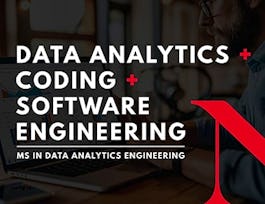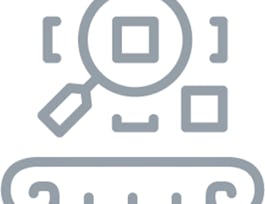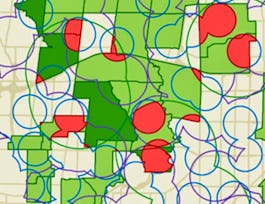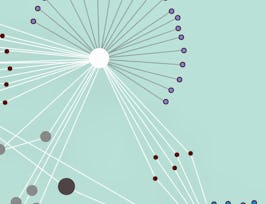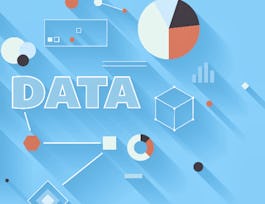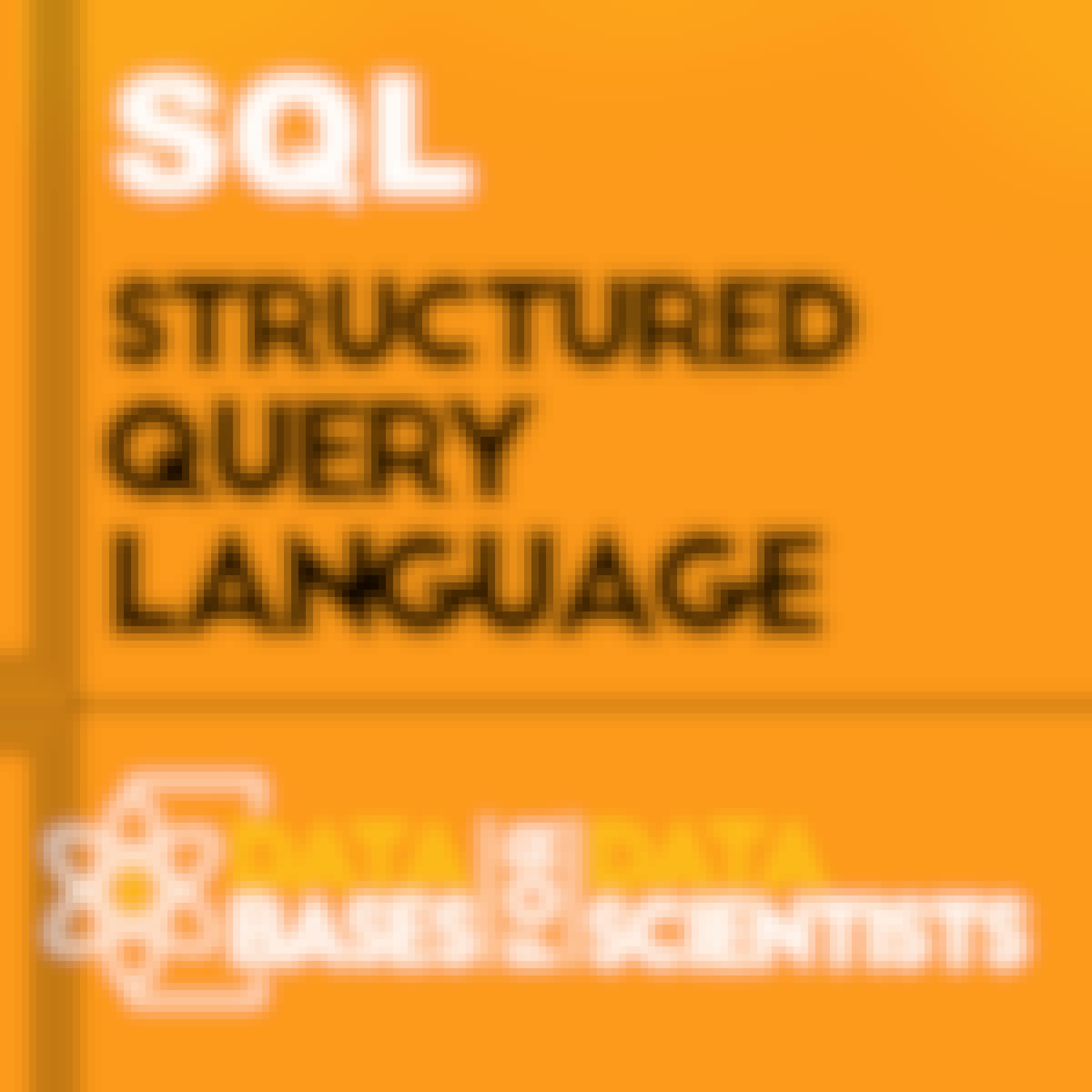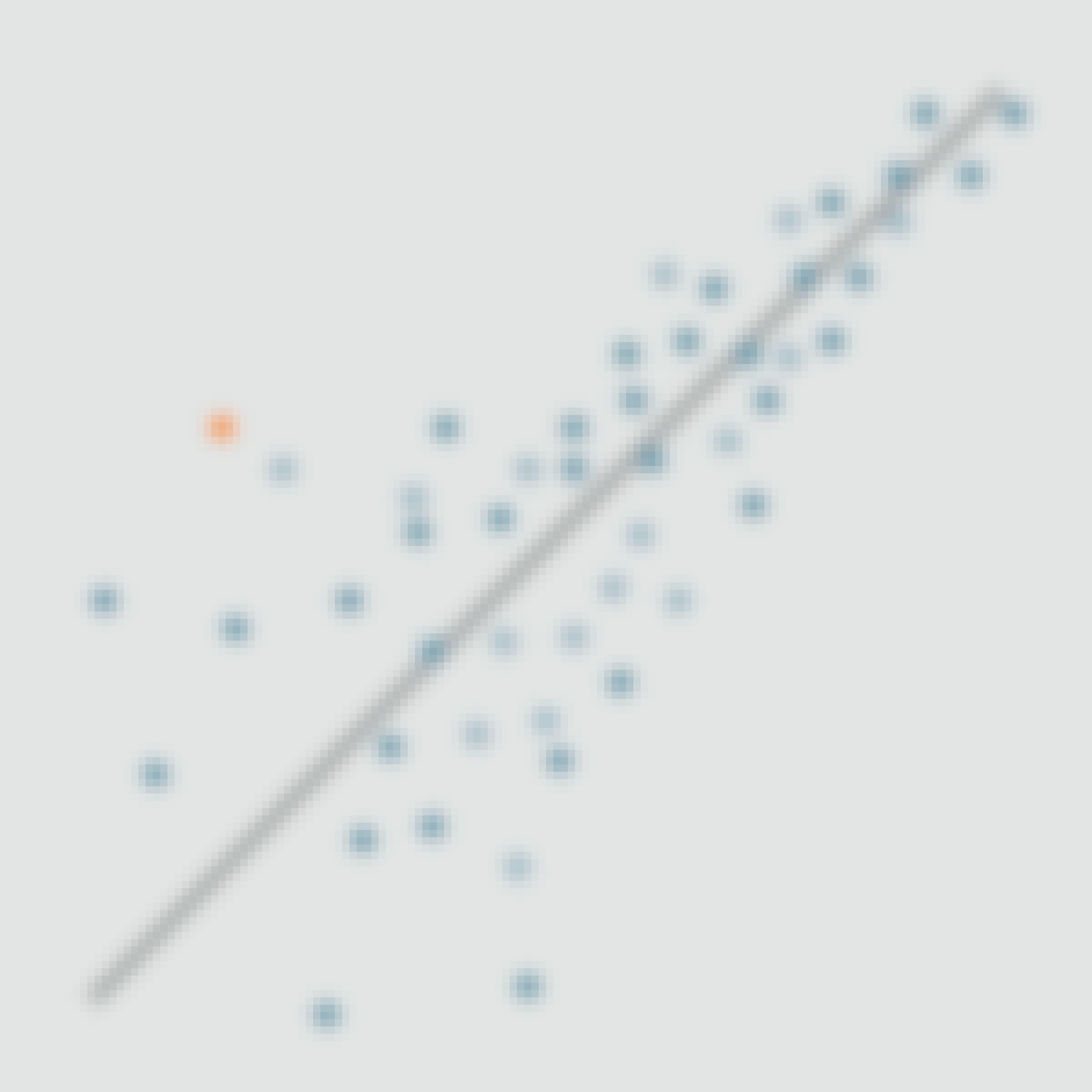Data Analysis
Earn Your Degree
Most Popular Courses
Top Rated Courses
Work Toward your University of Illinois MCS in Data Science
Launch Your Career
Most Popular Certificates
Becoming a Data Scientist
Frequently Asked Questions about Data Analysis
Data analysis is the process of collecting, cleaning, and interpreting data. The insights gleaned from data analysis help businesses make more informed decisions.
Data analysis can sound a lot like data science. They’re closely related fields, but there are important differences. Whereas data scientists tend to build algorithms and analytical models with which to gather and decipher data, data analysts are typically not responsible for the creation of those tools or systems.
Many data analysts use technical skills like SQL (Structured Query Language), a statistical programming language, like R or Python, and the ability to work with probability and statistics. Data analysts also have to know how to work with certain software like Tableau, MySQL, and SAS.
You can take individual courses on each one of these technical skills or learn several at once by earning your Professional Certificate through either Google or IBM, or enroll in a degree program to pivot careers or advance your knowledge.
When you're looking to begin a career in data analysis, the best online data analytics courses to start with include: Introduction to Data Analytics, Stanford Statistics, Data Analysis with Python, Analyzing and Visualizing Data with the Google Way, and Excel Basics: Data Analysis with IBM. These courses teach the fundamentals of data analysis while offering an in-depth introduction to the field.
If you already have a strong understanding of the field, you can gain new skills or advance your current skills with a number of specialty data analyst courses on Coursera, including IBM AI Workflow for Data Analysis and Hypothesis Testing, Machine Learning Data Lifecycle in Production, Advanced Valuation and Strategy, Automated Machine Learning for Datasets and ML Models, and Probabilistic Graphical Models. Each of these online data analysis courses covers advanced topics that can help equip you with key skills in those areas.
The answer to that will depend on the data analysis course you take, as each offering on Coursera differs. Many courses take 12 hours or less to complete.
Specializations—or a grouping of three or more courses under one topic—are often more involved and can take 3-5 months, at a suggested pace of 3-5 hours per week. Professional Certificates are also a higher time commitment, ranging between 5-7 months at a suggested time commitment of 3-10 hours a week.
The average annual salary for a data analyst was $72,274 as of March 2023, according to Glassdoor. Several factors can influence how much your salary will be as a data analyst, including years of experience, industry, and location.
Read more about how much you can make as a data analyst.
Data analysts are in demand across sectors given that many industries now rely on data to help make informed business decisions. As an entry-level data analyst, you may find openings in industries such as information (also known as tech), health care, e-commerce, finance, education, science, and many others.
Learn more about possible data analyst career paths.
Online Data Analysis courses offer a convenient and flexible way to enhance your knowledge or learn new Data Analysis skills. Choose from a wide range of Data Analysis courses offered by top universities and industry leaders tailored to various skill levels.
When looking to enhance your workforce's skills in Data Analysis, it's crucial to select a course that aligns with their current abilities and learning objectives. Our Skills Dashboard is an invaluable tool for identifying skill gaps and choosing the most appropriate course for effective upskilling. For a comprehensive understanding of how our courses can benefit your employees, explore the enterprise solutions we offer. Discover more about our tailored programs at Coursera for Business here.








